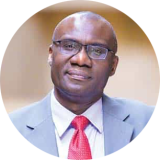
I want to thank all of the panelists, moderators and participants who took part in the second National Dialogues. It was heartening to have more than 1,000 participants representing more than 80 academic institutions across Canada take part.
This is important work and represents a collective and shared responsibility for all of us to pursue. We are better off when we work together on these issues. I am particularly grateful to colleagues that have been on the planning committee over the past year. I am immensely grateful for all the people who made sure these dialogues were a success. We don’t take this work for granted.
For those who raised questions about intra-panel representation, I assure you that the organizing committee was very much attuned to this and tried to cover the range of people who are represented in our community. I hope that, over the course of the day, you noticed through the composition of the panels that an effort was made to ensure representation. We did reach out to people who would have made the panels more representative. Unfortunately, many were not able to attend, but please know that we did invite them. In any case, the diversity of participants ensured that each session benefited from the interactions between the panel and the audience and related insights, lived experiences, and critiques.
This work continues to be part of our collective mission and we hope that today we’ve been able to acknowledge certain truths, some of which were difficult for us to accept because we tend to think we are making progress. This is not to deny that progress exists, only to state it hasn’t been good enough. We still have work to do in creating inclusive communities where people feel a sense of belonging and can be the best version of themselves. When the deficit model that stands in our way of collective sharing is removed, we can then benefit from everything our community brings to the table. Speaking about the table, I think one thing we can all take away is that the table is still not as representative as it needs to be. If it’s not representative, we are not going to find the answers we need, because answers come from people with lived experiences — those with a sense of how to negotiate and manage these complex issues.
I want to speak briefly about next steps. This is meant to be a conversation. We don’t have the answers about particular action items, but we’re hoping what you learned here gives you a sense of what needs to happen. We have tried to pool this information into something we can all share and continue to learn from. One of the advantages of the higher education sector is we pride ourselves on the mobilization of knowledge and people. We need to ensure consistency across our sector so that irrespective of where you go, you can benefit from a shared understanding of ableism and the need to dismantle it.
We also want to ensure we can create opportunities for all of us to thrive and do well. The goal is to help bring these collective conversations into the public space so that we can all bring about positive change.
Professor Wisdom Tettey, Convenor
(Vice-President, University of Toronto, and Principal, University of Toronto Scarborough)